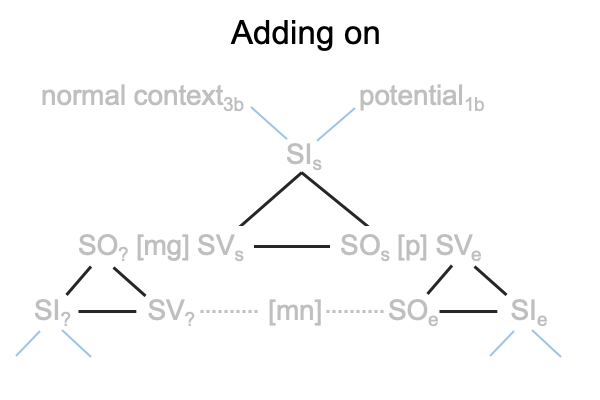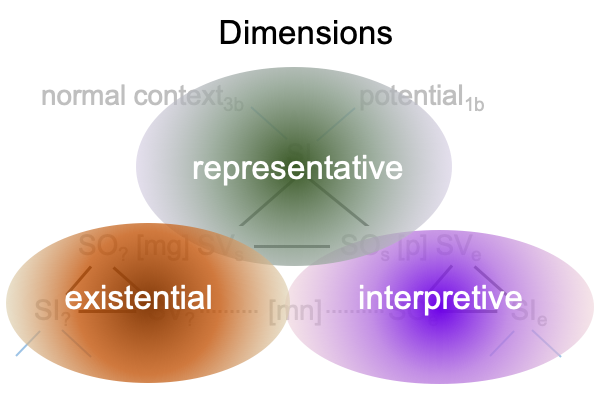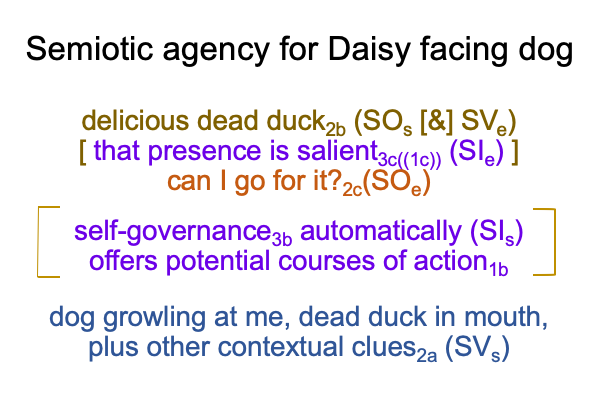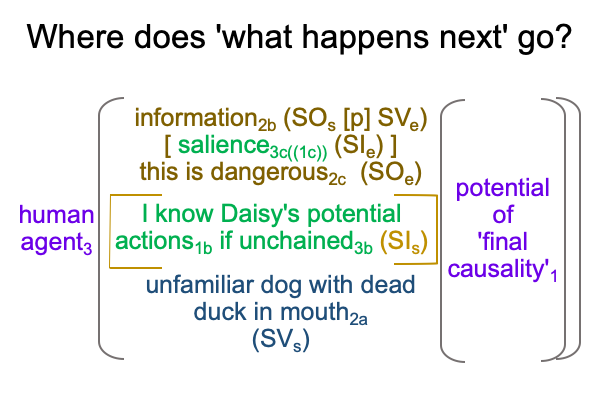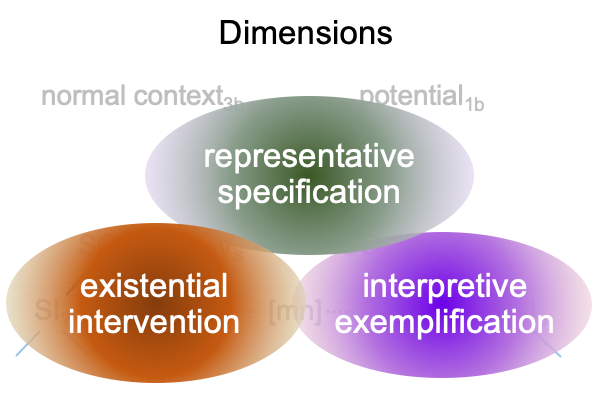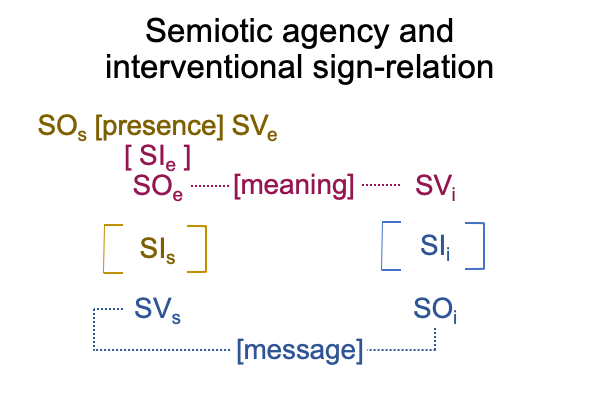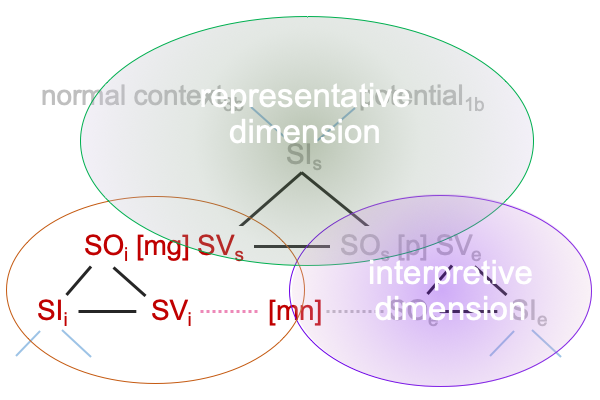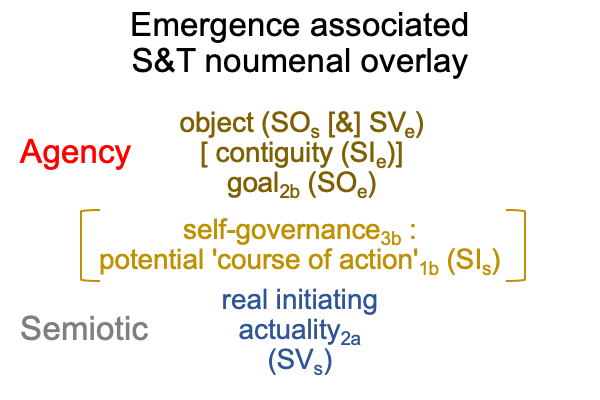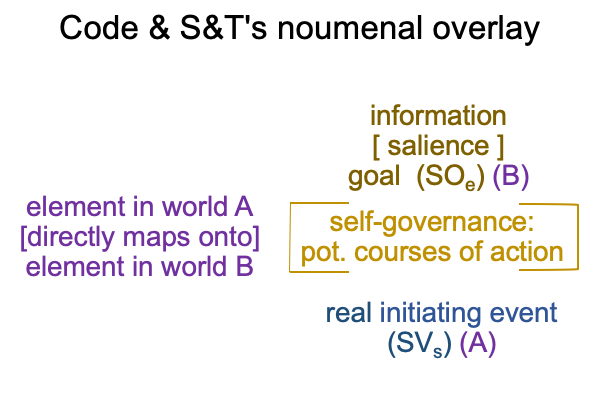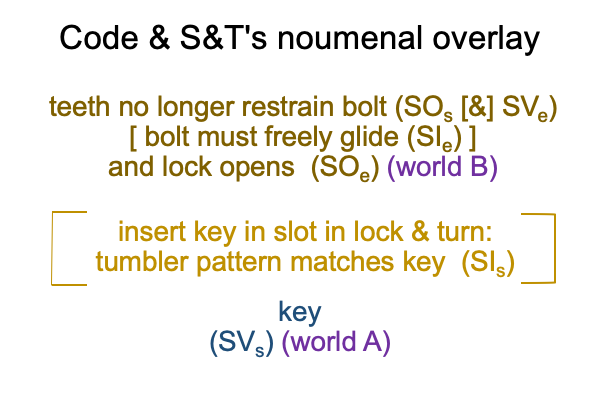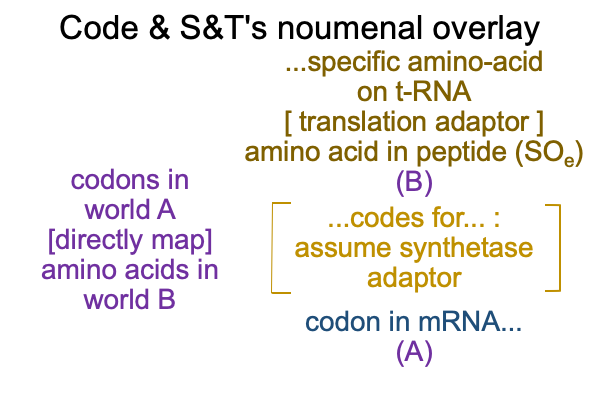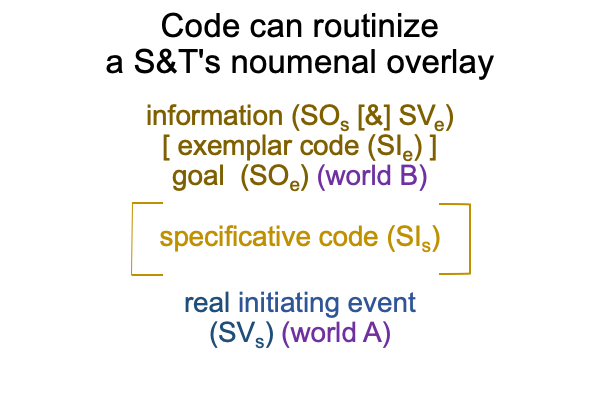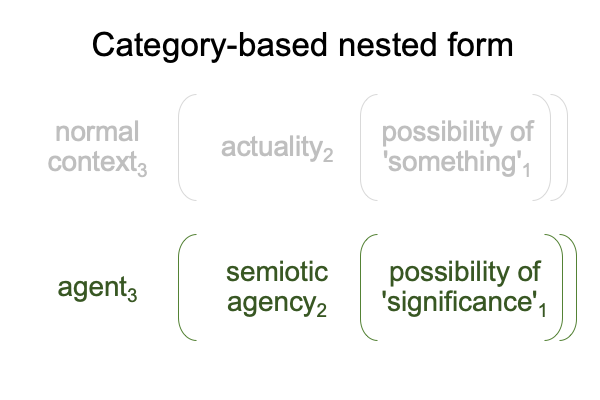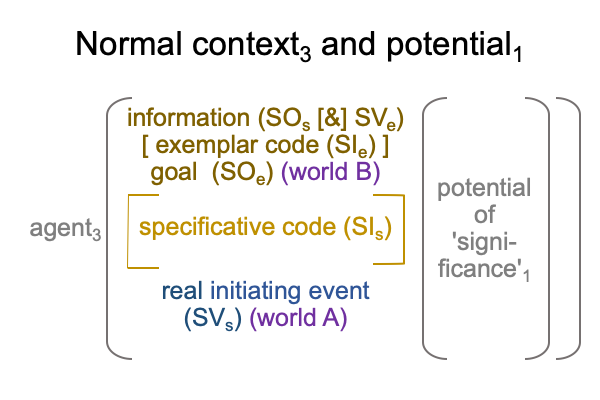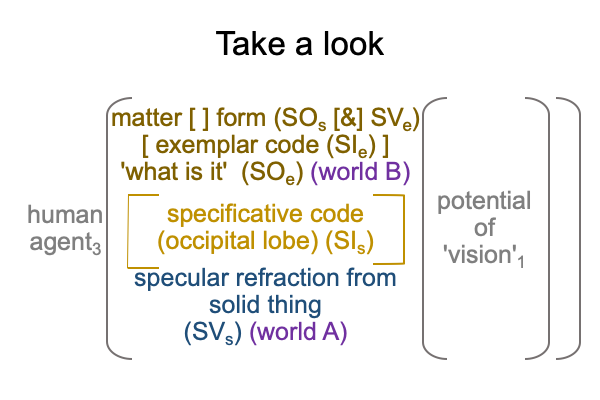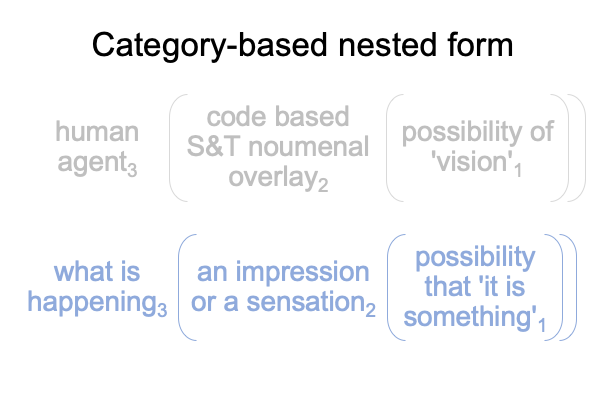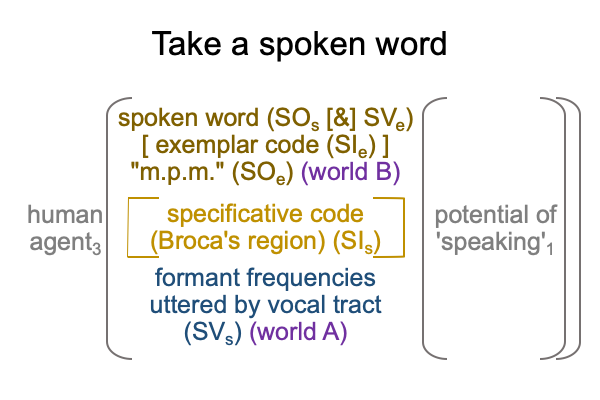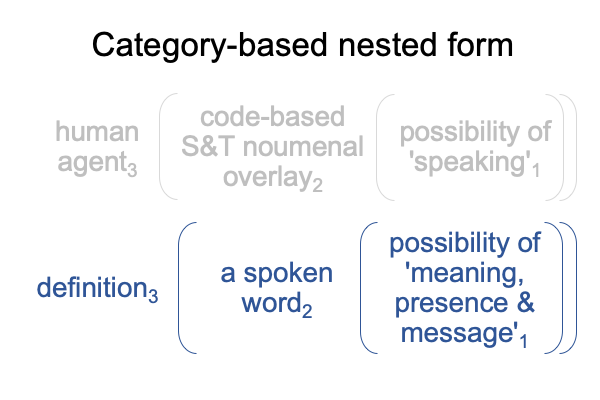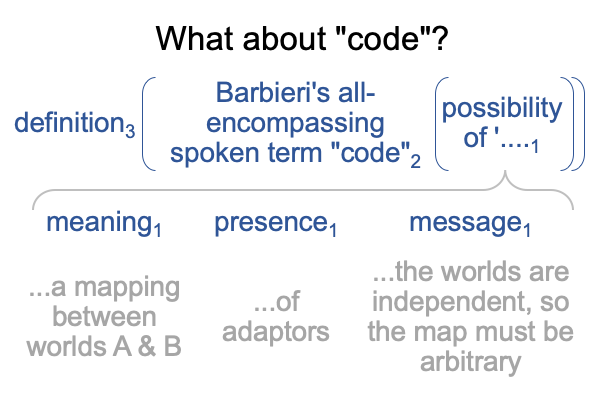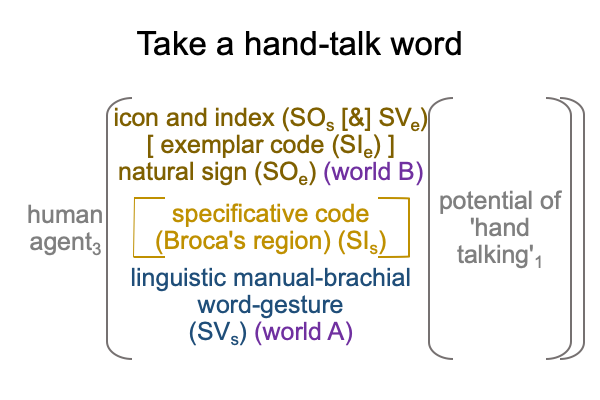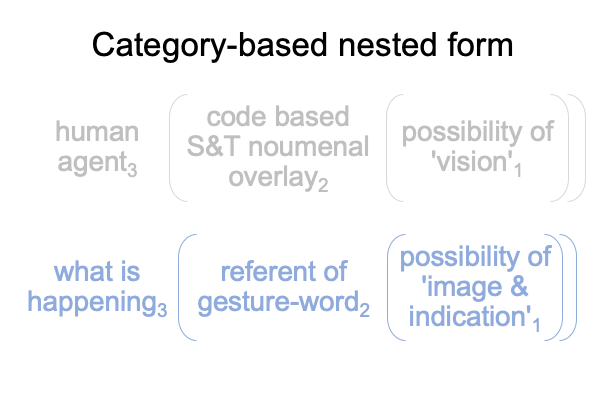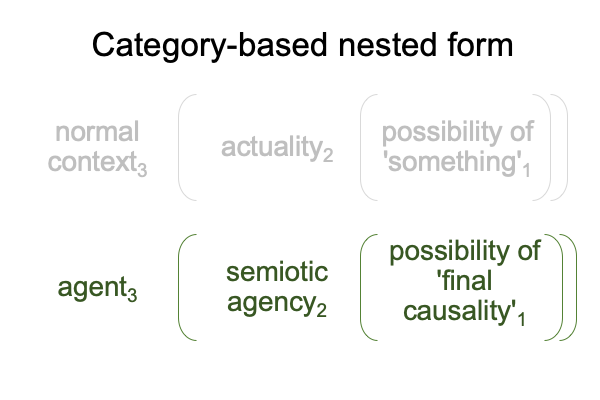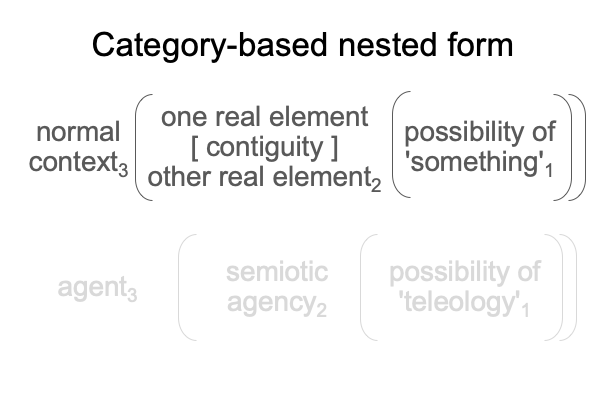Looking at Hongbing Yu’s Chapter (2024) “…Danger Modeling…” (Part 4 of 7)
0783 The first concession to make is that the incident where a fallen tree appears to be a bear fits nicely into the author’s model.
The model is a bear. Or, a bear is the model.
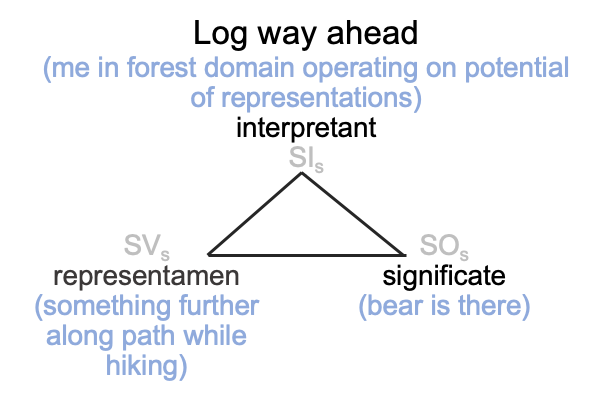
0784 When the author uses the term, “gestalt”, to describe the congruence of model and semiosis, the author means that the entire relation comes into being as a whole. The sign-relation is not a sum of dyadic causes [and] effects. The sign is an indivisible, purely relational being.
Matter enters into the being through existential (as SV), representational (as SO) and interpretive (as SI) portals or “dimensions”.
0785 Of course, I tend to work with a very different looking picture of sign-relations. A category-based nested form is one of the simpler triadic relations. Thirdness bring secondness into relation with firstness. Normal context3 brings actuality2 into relation with the possibility of ‘something’1.
The category-based nested form is fractal. An interscope is a category-based nested form composed of category-based nested forms. Perspectivec brings situationb into relation with the potential of contenta.
In the framework of category-based nested forms, a sign-relation crosses levels of an interscope. The specifying sign-relation crosses from content (SVs) to situation (SIs and SOs). The exemplar sign-relation crosses from situation (SVe) to perspective (SIe and SOe).
0786 The problem is that an interscope containing specifying and exemplar sign-relations is not available to science. It is sort of like a model. And, triumphalist scientists love to place successful models into the slot for the noumenon in the Positivist’s judgment. Then, the model (as a substitute for the noumenon) [can be objectified by] its phenomena. That is the nature of the laboratory sciences. The goal is to replace the noumenon with a successful model. The model becomes as real as the noumenon, the thing itself.
0787 Compare a tree falling in a forest and the concept of gravity.
Which is more real?
0788 Now, look at the above figure and see how it models why I turn around in my hike when I think I see a bear on the path in the distance.
Which is more real, me seeing a bear or the sign-relation of a log way ahead?
0789 Now comes the amoeba business.
The sign-relation depicted above is a specifying sign-relation.
The specifying and exemplar sign relations are incorporated into Sharov and Tonnessen’s noumenal overlay.
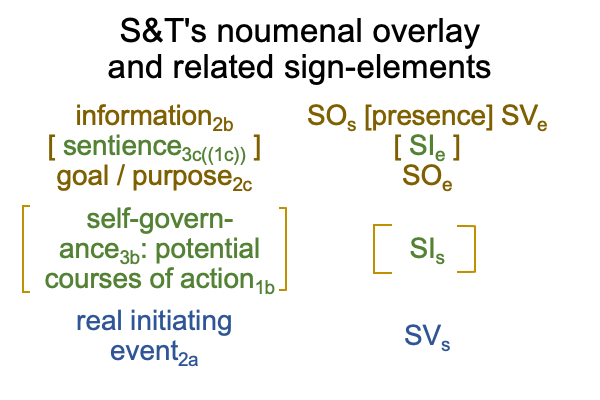
0790 One of the benefits of engulfing the morsel of Sebeok and Danesi’s concept of “model” as a sign-vehicle that stands for the matter at hand is that I arrive (through two steps, conversion into a situation-level nested form and re-arrangement of the actuality into a dyad similar to Aristotle’s hylomorphe) at a familiar label for the contiguity between the real elements of actuality2b. Instead of [&], the contiguity is [presence].
0792 This raises two questions.
0793 One, in S&T’s noumenal overlay, the sign-vehicles and sign objects support phenomena and the sign-interpretants are what needs to be modeled by biosemioticians. So, an explicit scientific “model” is not the same as the semiotic “model” of [SIs] or [SIe].
The question takes off from there, asking, “If the sign-interpretants that need to be modeled are contiguities in semiotic agency, and if [presence] is the contiguity between SOs and SVe, does [p] need to be explained as well?”
My abbreviation for “presence” is [p].
0794 Two, I thought that “presence” associated to the entire situation-level actuality, {SOs [&] SVe}2b and now “presence” replaces [&]. Then, what about the “message” for the content-level actuality, {SVs}2a, and what about “meaning” for the perspective-level actuality, {SOe}2c?
Where are the contiguities [mg] for “message” and [mn] for “meaning”?

